Looking at me from afar, I’ve been told that I appear to have a perfect life. I mean, everyone knows that having good grades, comfortable finances, loving parents, and a relationship with Christ means that I must have everything together and know nothing of the struggles faced by “normal” people. Please, allow me to disperse this falsehood straight away and apologize for any masks I’ve worn that have led some to hold this view. I cannot deny it though: growing up, things came pretty easily to me. Anything that I participated in, I seemed to be a natural at. Gymnastics, martial arts, swimming, band, school, none of it fazed me. I was considered a bright child, but I did not really realize that. It was all I had ever known; it was normal for things to come naturally to me. None of that could guarantee a perfect life though because, the thing is, perfection does not exist on this earth—and the quest to try and reach perfection could have killed me. Anorexia Nervosa could have killed me.
Being a relatively well-liked child in elementary school, I didn’t worry about what others thought of me. Being raised by a mother who ate intuitively and didn’t obsess over her body, I didn’t worry about mine either. Being raised in a home where as long as we had tried our best, we were good enough, I didn’t learn to equate success with love. Childhood was good to me, and I grew up blissfully happy. Sixth grade was the first year in which I was given a reason to be displeased with myself, for the popularity game changed after elementary school. I wasn’t used to having to be someone I wasn’t if I hoped to have friends, and I wasn’t terribly willing to change. All of a sudden, I went from being friends with most of the kids in my class, to being an outcast. Twelve years old, and I wasn’t cool enough, smart enough, pretty enough, thin enough, good enough. Looking back, I believe that this was the first of many trials to come as a result of the decision I made as a young child to follow Christ. Going through what I did that year—the emotional bullying—gave me a small glimpse of what it must have been like for Jesus when He was ridiculed for His teachings. Unlike Jesus though, I didn’t turn to God during these hard times. Instead, I grew away from Him, losing my identity that came along with my budding relationship with Him in the process.
That first year of junior high is the first year I can remember my confidence truly faltering. I lost the bounce in my step. I lost my habit of keeping my chin up. I lost my willingness to participate in class. I lost my love for school, and instead hated every second spent in the torture chamber. By the end of the year, I knew I could not stay at that school for another two years. I began begging daily to be homeschooled for the remaining years of junior high, and after I came home from school in tears one day, my parents couldn’t say no. Over the summer, I was pulled out of the public school system. Research about homeschooling was done, curriculum was bought, and the next fall, I officially became a homeschooler. As the next two years unfolded, the confidence I had lost began to slowly return to me, my relationship with the Lord that had become broken in sixth grade began to mend, and I found myself again.
Summer after eight grade/before freshman year.
At the end of my two years at home, we were unsure about what path I should take moving forward in my education. I knew that I had no desire to attend a typical public high school, but I took interest in the newest high school in our town. It was an early college high school that offered high school students the chance to obtain an associate degree while simultaneously completing their high school coursework. It was known to be rigorous, fast-paced, abundant in teachers and students who cared about good education, and I had heard nothing but good things from an older friend of mine who was attending. I knew it was the place for me, and I had my heart set on going. In order to attend the school, I had to overcome the obstacle of applying and being accepted. Because of the types of students the school targets, the only thing on my application that I had going for me was my history of excelling in environments of advanced academics. The day I was expecting to receive what I hoped would be my acceptance letter, I checked the mailbox practically every five minutes. When the mail finally arrived, I burst into tears of relief and excitement over having my acceptance confirmed. To most, this may have merely been a great opportunity; to me, it was not only an amazing opportunity, but also confirmation that I was indeed enough.
Unannounced to me at the time, freshman year saw a few traces of my eating disorder (ED) starting to appear. I subconsciously believed that I needed to prove that I belonged at the school, to prove that accepting me wasn’t a mistake. I worked hard, studied more than the necessary amount, actively participated in several clubs, began the school newsletter, and had an amazing first year of high school. I had found my niche. As the year wore on and I continued to excel, it became common knowledge that I might be in a position to graduate at the top of my class. This had never been something I considered when I was younger, but the possibility of becoming valedictorian was quickly becoming a reality. Being the competitive person that I am, this only drove me to work harder to secure my place up at the top. Staying busy with school and extracurricular activities, I didn’t think about food much. I would often spend hours doing homework, forgetting to take a break to grab anything to eat. I began to receive worried comments about my eating habits and size from my parents and a few family friends. Now, as far as I know, I did not lose much—if any—weight. There were still a few concerns though, and as I had no ED backed motives for not eating at the time, I began to consciously increase my intake to show everyone that I was perfectly okay. In retrospect, I believe that I enjoyed the comments more than I realized. I liked people saying that I looked thin because at this point, I had realized that there was a time in my life when I had not been.
Summer 2009, I think.
My main struggle in junior high was my confidence over who I was, not what I looked like. Come high school though, I began reflecting on the past couple of years in my life, and I started to find flaws in my physical appearance. In junior high, my go-to style was running shorts, a large t-shirt, and a horrendous looking ponytail. I saw putting any more effort into my appearance as a waste of time, so I simply didn’t. Going further back, to around fourth grade, I had put on the weight typical of girls whose bodies are developing. It was not anything to be concerned about, and I thankfully wasn’t while in the midst of the changes. It wasn’t until years later, when looking back, that I could not stand the way I had once looked. When this dislike began to grow, part of me became determined to not look back at my high school years and feel the same way. This planted seed didn’t sprout immediately, but it joined other seeds that would one day become a tangled garden of weeds.
Upon embarking on the journey of high school, I began paying more attention to my body, and I became more aware of my weight. I started learning a little bit more about fashion, hair, and makeup. I, in essence, became a typical teenage girl. I had built myself a small foundation of knowledge by the end of my freshman year, and could only go up from there. In reality though, developing the interests typical of high school girls and becoming more self-conscious paled in comparison to the other factors that played into my eating disorder.
August 2011, beginning of freshman year
Sophomore year, I felt the pressure of being the valedictorian. Perhaps I imagined things, but I do believe that there are at least a few expectations held by teachers and peers for the top of the class. Even more than what my educators and fellow pupils may have expected though, was what I expected from myself. Saying that sophomore year was busy is an understatement. At my school, sophomore year was the most academically demanding. I did not draw the line at merely keeping up with school work and my grades though. I actively participated in student government, held officer positions in a club or two, ran the school newsletter, squeezed in some volunteer hours, and prepared to audition for one of the Texas Music Education Association’s All Region Bands. Spread thin and exhausted, I still felt compelled to continue doing all of this. I felt that if I let even one thing go, I would fail. I would never be accepted into a four-year university, I would never receive the scholarship money I want and need, I would never be accepted by others, I would simply be a failure. In my attempt to meet the expectations I perceived to be placed on me as the valedictorian, in my attempt to put myself in the best position possible to be awarded scholarships, in my attempt to prove my worthiness of my spot at my school, in my attempt to not be a failure, and in my attempt to regain control in the midst of utter chaos, I began crossing over the fine line between being a perfectionist, and being obsessive-compulsive.
Perfectionists want everything to be, well, perfect, but most know when to let something go. Perfectionists work diligently, pay attention to detail, and double-check their work. I began going much further than this. Instead of working diligently, I worked endlessly. Whatever length of time it took to ensure that every last element was as close to perfect as I could get on earth, I would spend working. Being able to double-check work without having an anxiety attack would have been a blessing to me after triple-checking became the bare minimum. Being able to go more than a few hours without compulsively checking my grades would have been a blessing. Being able to let an extra credit assignment go undone would have been a blessing. In my mind, if I didn’t work for hours, triple and quadruple check, do extra credit, participate in extracurricular activities, and spend every spare minute studying, I would let myself go and become a high-school dropout who spent the rest of her life unable to hold a job and unable to pay her bills. It was a terrifyingly real fear, for I saw everything in black and white, all or nothing.
October 2012, sophomore year
I felt out of control my sophomore year and these compulsions were my attempt to regain it, but things didn’t stop there. I developed an obsession with calorie counting, and it became a bit of a game. The objective of said game was to beat my score from the day before. Scoring worked in a similar fashion to golf: the lower, the better, and each meal had a “par.” Come the end of November, I was falling into a full blown eating disorder before I had the chance to wake up and realize what was happening. I felt in-control; the eating disorder felt safe. It was anxiety-relieving, and brought on a feeling of having some power in my life. I knew I had the self-control to keep myself from eating. I knew I had the capability to operate on two to four hours of sleep and no caffeine. I knew I had the determination to keep my grades where I wanted them. I didn’t see how self-destructive any of it was, yet it was far too unrealistic to be a sustainable lifestyle.
Over Christmas break of my sophomore year, things really kicked into gear. Instead of gorging myself on holiday food, I restricted as much as I could, managing to drop a few carefully tracked pounds in the process. Christmas was set to be celebrated with my father’s side of the family on December twenty-third. The fact that this happened to be my sixteenth birthday was forgotten about when the date was set, so my parents left it to me to decide whether or not I wanted to go and spend my birthday celebrating Christmas. The circumstances could not have been worse: my aunt and uncle who live in another state were flying in for the holidays because it was the last Christmas we would have in my grandparents’ memory filled home before they moved into a retirement complex. It was up to me to decide whether the entire family would be present, or whether our piece of the family pie would be missing. In the end, I chose to go because I didn’t feel as if I was worth being celebrated. When I was bid a “Merry Christmas” multiple times before the “And, oh yeah, happy birthday!” followed, I believed that I deserved to be forgotten about. As self-centered as this may sound, I had been hoping for a little acknowledgement on a milestone birthday, and I don’t think that was too much to ask for. I still managed to find what I saw as the silver-lining though. Celebrating Christmas on my birthday, and not being a fan of the traditional holiday food that was being served, I had the perfect excuse to simply not eat a whole lot. My mind was so consumed with thoughts of food and calories and losing weight that the festivities really didn’t matter much to me. I was a warm body in a room, nothing more.
From there, I continued digressing until January came, at which time I was at my absolute worst. Weighing became more obsessive, I hit my lowest weight, I compulsively exercised, I started self-harming, and I continued restricting as much as my body would allow me to before demanding to be fed. In the middle of it all, I didn’t think much about my circumstances. I still expected perfection out of myself. Despite the fact that I was working out more than I should have been, eating and sleeping less than I should have been, preparing for All-Region Band, and navigating my way through the most difficult year of my high school career, Miss Ana (my name of choice for my ED) expected me to continue dropping weight, to keep on striving for increasingly higher grades, and to never stop appearing pulled together. These were the things, after all, that were essential for me to be a loveable person. Looking back, I’m not entirely sure how I did it. It was not realistically sustainable for long. I only lasted four months, but I now wonder how I lasted at all.
January 2013, sophomore year
Even now, nearly a year later, four months still feels entirely too short. I believe that I should have carried on in this manner longer because my lowest weight should have been significantly lower than it was. I believe that I should have carried on in this manner longer because I feel that I gave up too quickly. I believe that I should have carried on in this manner longer because I feel that getting help was something I did out of weakness. The difference now though, is that even though these “should have” thoughts still get to me at times, I am able to recognize that these beliefs and thoughts are deeply rooted in my eating disorder. These are not things I myself actually wish for, and part of me had to have known this even at that time as well because in spite of the appeal of Miss Ana’s masterminded deception, I mustered my courage and made the most terrifying decision of my life: I got help.
I will never forget that March night. I hand-wrote my carefully thought out letters to my parents, and at three in the morning, I snuck downstairs as quietly as I could and laid them out on the kitchen counter. Heart pounding, I hastened back upstairs to lie in bed. Sleep was nowhere to be found, and my ears worked overtime as I lie in my dark room. I remember physically shaking, and finding a steady voice was impossible. My parents handled the news better than I had expected, yet I almost immediately regretted my decision to go to them. I wasn’t ready to recover, so I thought, but some small part of me must have whispered that it was a good idea because I accepted my parents offer to help in whatever way they could. I suggested that professional help was the way to go, did my research and found a therapist who met my criteria. Walking into her office for the first time the following week, I didn’t know what to expect. I wasn’t sure whether I’d like her or not, and I nearly had myself convinced that it was a waste of time because she would surely dismiss me as a fake anorexic and send us on our way.
She did not dismiss me as a fake though, and I ended up finding great freedom in being able to speak to her honestly about what had been going on. After all of an hour and a half with this woman (who we shall call K), I knew that I had to look no further. I had found a therapist I felt comfortable with and knew I could trust. She had been down this road; she understood; she had hope for me when I saw no end; and she had faith in God’s plan for me when I had none.
January 2014, junior year
I began seeing K weekly, but progress was slow. I had forced recovery upon myself, in a sense, but I wasn’t entirely ready for it. I spent several months afraid of doing anything more than testing the waters with my toes. I still actively used eating disorder behaviors and self-harm to cope with the stresses of life. Through the various end-of-year exams and into the start of summer, I swayed back and forth with my feelings towards recovery. I was weighing the pros and cons, coming near to get a better look, but generally keeping my distance. Once the stress of the school year was gone, I found that the anxiety brought on by the unstructured summer days was not any less than the anxiety I face over school. I only saw one way to maintain control: continuing to engage actively in my eating disorder. Not being at school all day allowed more time for exercise, and I took advantage of it. I began purging and continued restricting, desperately trying to lose weight. All of this was brought to a halt a month into summer, however, when I was put on my first meal plan.
The day we started that meal plan, which held me accountable to eating, was the day I feel that I truly started to recover. Sitting in K’s office having the details of my meal plan spelled out for me, Ana was not a happy entity. I had no way out though. Someone always watched me eat and then kept an eye on me for a period of time afterwards to ensure that I kept the food down. I had no say in whether I ate or not, and I only had limited choices in what I ate. The meal plan was a huge adjustment for me, but it was rather liberating to lose control. The pressure was no longer on me to make the agonizing decisions over what and when to eat. We were getting closer to a point of stabilization, but I hadn’t quite reached where I needed to be when the start of the school year rolled around. I wasn’t fully accountable to my meals on my own, and I still obsessed over my grades and faced a lot of anxiety around school, which I demonstrated clearly in the way I tackled the government course I took that summer. I was making progress, but I hadn’t made enough. As a result, K and my mother decided that it was best I be pulled out of public school in favor of homeschooling for my junior and senior years.
October 2013, junior year
I lost nearly all of my friends from school. I lost my class rank, which had become a large part of my identity. I lost my grades. I lost my role in school clubs. I lost my home, and I lost a bit of myself. School had become the center of my life, and I was unsure of what to do with myself when it was taken away from me. Months later, I have yet to fully come to terms with this decision, but it’s beginning to grow on me ever so slightly as I’m starting to find my niche again.
Being put on a meal plan, being pulled out of school, being a month clean of self-harm at that time, I felt that I had nothing left. I had no identity, and I had none of my old compulsions available to use to help me cope. The only choice left was to finally put an effort into recovery. I was put in a position that made recovery the top priority of my life. Less than thrilled about this, I still began taking steps in the right direction. I found new outlets for anxiety in journaling and blogging, and I began using my old outlet of music once again after abandoning it over the summer.
Eating did eventually become easier. A few months into the meal plan, I began seeing my lovely dietitian, and we worked our way up from the reduced meal plan we had started with K, to a full one. I was starting to gain more control over my meals again, and I was holding myself accountable to having them. I was starting to have more good days, and less bad ones. I was coming to certain realizations, starting to challenge Ana’s lies in favor of God’s truths, and was becoming a happier person. Things certainly were not perfect, and I still faced many hard times. There was a difference in my attitude about them though. Instead of actively engaging in my eating disorder, I was actively engaging in recovery. The voice was still there, the struggles were still real, but I was attempting to fight them, instead of giving in before they’d even had a real go at me.
August 2013, junior year
This past November saw all of that come crashing down. I had reached the one year anniversary of the start of my eating disorder. Finding it difficult enough to cope as it was, when K brought up reducing the frequency of my appointments with her (still in the dark about what had been happening in my mind at the time), I snapped. I saw the progress I had made in one year, and I slipped. I believed that I was recovering too quickly, and I was afraid to let Ana slip any further away. After reaching a record of four months clean from self-harm, I relapsed. After becoming accountable for having my full meals and snacks, I restricted. After starting to be okay with taking a day off from exercising, I pushed my limits again. No one knew quite what to do with me during this time. I was so determined to reach the original goal weight I had set and never met. I was so determined to not recover. No one tried to make me because no one could make me, but the decision was put bluntly to me: recovery, or continued relapse? Each had its benefits and consequences, and I had to choose. After nearly two months of teetering on the edge and eventually falling off and into a relapse, I decided to stand back up again. I decided to make an effort again. I decided to do my part again.
I came to the realization that Ana will continue to make her promises: beauty, happiness, acceptance, love, so-called perfection. All she does is take though. As long as my eating disorder is around, I will never feel like it’s a real issue. One of the major factors that lead to my relapse was the belief that I needed to lose more weight. I have always had a hard time with the small amount I lost. Come the one year mark from when I had first started restricting, and I started the cycle over. I wanted to do better the second time around. I wanted to lose more weight because I felt that I needed to in order to have a valid problem. It clicked one night though: it doesn’t matter how much weight I lose, I’ll always feel a need to lose more because it will never feel like enough. I realized that trying to stay in the middle of recovery and relapse was not going to work. As the saying goes, if you’re not recovering from your eating disorder, you’re dying from it. I realized that I only had one option. I finally saw that recovery was my only option.
January 2014, junior year
Miss Ana could scream whatever she wanted at me, but it would all be to no avail. For every time I fell down, I knew I had to stand back up. For every struggle that came about, I knew I had to be honest and accept support. I was thankfully able to enjoy my birthday, have a wonderful Christmas, and enter the new year with this new epiphany fresh on my mind.
Real progress is being made again, but I cannot paint a picture of a perfect recovery. I’m still terrified of making improvements. I’m still terrified of recovery. I’m still terrified of looking behind me and seeing the length of road I’ve traveled over the past sixteen months. Rough days come, and rough areas still exist. Depending on the day I’m having though, I can occasionally glance back and take pride in how far I’ve come. (While that may all be contradictory, that’s recovery from an eating disorder.) Milestones for the time I’ve been clean from self-harm and purging are being hit with each passing day. I’m accountable for my meals again, and I do not typically face anxiety around them when sticking to safer foods. Because I cannot continue to eat the same, safe food over and over again for the rest of my life though, I’m starting to slowly challenge my fear foods. I’m starting to believe that I’m worth more than bleeding cuts, charred skin, or a growling stomach. My dreams are growing once more as the belief that I’ll be here to turn them into a reality sinks in again. God has been showing me how my struggles are being used to help others, and I’m starting to consider new possibilities for my life.
Recovery is so much more than becoming healthy physically. Recovery is learning to trust God again—trusting in His plans for my life and surrendering control. Recovery is experiencing the freedom of careless moments, happiness finally being an okay emotion once more. Recovery is having thoughts that no longer center on burning and counting the calories I consume. Recovery has taught me to set healthy boundaries and recognize my limits, and I’m slowly becoming an expert at self-care. Discovering who you are as a person outside of an eating disorder is not easy, but it’s part of recovery as well because beginning to live a real life is one of the most rewarding things ever after merely existing for so long. In recovery, a stop must be put to the endless pursuit of perfection. After all, flawed people are the best kind because they are the only kind. It is through my weaknesses that God shines the brightest, so I’m learning to love who He created me to be—imperfections and all.
Give yourself a pat on the back if you made it to the end! Please feel free to share this, other posts, links to my blog, etc. with others you know if you would like. Thank you to everyone who has supported me thus far; I wouldn’t have reached this point without you!

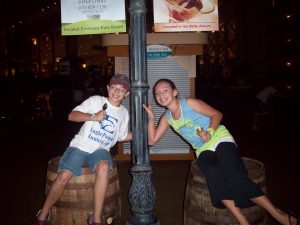
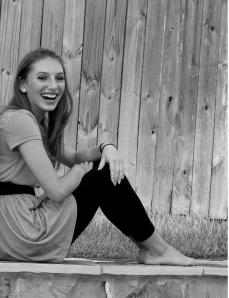
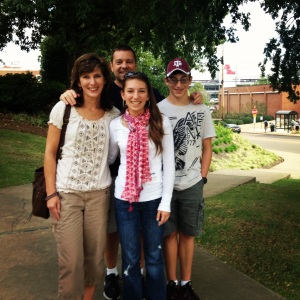
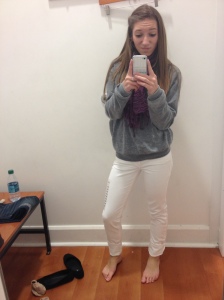
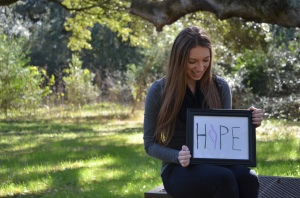

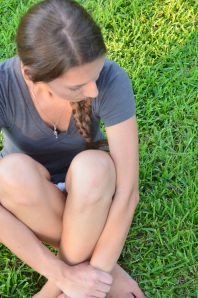
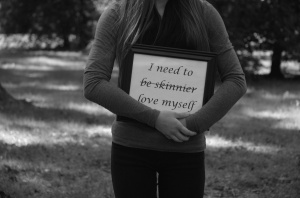
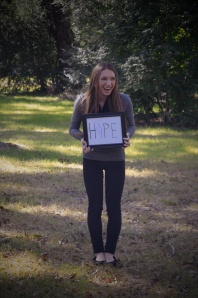
Reblogged this on The Weekend Country Girl and commented:
This amazingly brave young lady and I have a history. Please read her story and pass this along to moms and grand moms who may have a child struggling with body image and eating disorders.
You are amazing and I love you. I’m speechless. Thank you. Thank you for sharing this.
You are also amazing, and I also love you. I know I only just found your blog and Insta a week or two ago, but seriously, I really do already have a growing connection with you. We’ve shared so many similar experiences, and I am loving following you on your journey. Thank you so much for these sweet words. I’m so glad you enjoyed it. ❤
Thank you so much for sharing your story! It was incredibly brave of you to be able to post it so publicly, but you never know who needs to see it. Recovery is definitely not perfect, but you are doing so well and I’m so proud of your progress! You are beautiful inside and out and I’ve been blessed by being able to get to know you.
You’re so welcome; thank YOU for reading it! I must say, it helped that I worked up to being so public about it by telling different people at various points in recovery. I was thankful for the previous experience I had with telling people and handling their reactions and/or questions/assumptions. CR has been a blessing to me as well. See ya Monday!